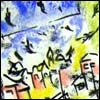When Miriam spoke negatively about her brother, Moses, she was rebuked by G‑d and afflicted with the skin disease of tzaraat as a punishment. Due to Moses’ prayers, she was cured soon after, but still needed to remain outside of the camp for seven days.1 Aaron, who had listened to her negative speech without protesting, was also punished, but not as severely.2
Unfortunately, the spies who were sent soon afterwards to Israel did not take a lesson from this story, and they too spoke negatively—about the land of Israel. The result was that the Israelites of that generation all died in the desert.
The idolatrous armies of King Ahab were successful in their battles, because they did not have the sin of lashon haraIn fact, we find that lashon hara, negative talk, is a sin that has caused numerous tragedies for the Jewish people, and indeed the world, since the very beginning of history.
Some examples of this are:
- The Midrash tells us that the snake slandered G‑d to Eve when convincing her to eat of the Tree of Knowledge.3
- Joseph spoke negatively to his father, Jacob, about his brothers, causing them to hate him. This led to their selling him, and ultimately caused the Egyptian exile.4
- At first Moses wondered why the Jews deserved their difficult slavery in Egypt. When he heard that there were talebearers amongst them, he said that he then understood why they deserved this fate.5
- The slander of Doeg, King Saul’s chief shepherd and the head of the Sanhedrin, caused the massacre of nearly an entire city of kohanim.6 In fact, the armies of King Saul lost their battles with the Philistines as a result of the slander that people spoke against (then future) King David.7
(On the other hand, the armies of the notorious King Ahab were successful in their battles, despite the fact that they were idolatrous, because they did not have the sin of lashon hara.8) - According to the Talmud, it was the slander of Jews by Jews that actually brought about the destruction of the Second Temple.9
The laws of lashon hara are too lengthy to include in one article. In fact, Rabbi Israel Meir Hakohen of Radin wrote an entire book about these laws. The book is called Chafetz Chaim (which caused the author to be known as the “Chafetz Chaim”) too. The name is inspired by the verse in Psalms, “Whoever of you desires life (chafetz chaim) . . . guard your tongue from evil . . .”10
Nevertheless, here is a brief overview of some of the laws, mostly gleaned from Chafetz Chaim:
- Lashon hara literally means “bad talk.” This means that it is forbidden to speak negatively about someone else, even if it is true.11
- It is also forbidden to repeat anything about another, even if it is not a negative thing. This is called rechilut.12
- It is also forbidden to listen to lashon hara. One should either reprimand the speaker, or, if that is not possible, one should extricate oneself from that situation.13
- Even if one has already heard the lashon hara, it is forbidden to believe it. On the contrary, one should always judge one’s fellow favorably.14
- If one has already heard the lashon hara, he is forbidden to believe itNevertheless, one may suspect that the lashon hara is true, and take the necessary precautions to protect oneself.15
- It is forbidden to even make a motion that is derogatory towards someone.16
- One may not even retell a negative event without using names, if the listeners might be able to figure out who is being spoken of.17
- In certain circumstances, such as to protect someone from harm, it is permissible or even obligatory to share negative information. As there are many details to this law, one should consult a competent rabbi to learn what may be shared in any particular situation.18. Learn more: Whistle-Blowing in Jewish Law







Join the Discussion